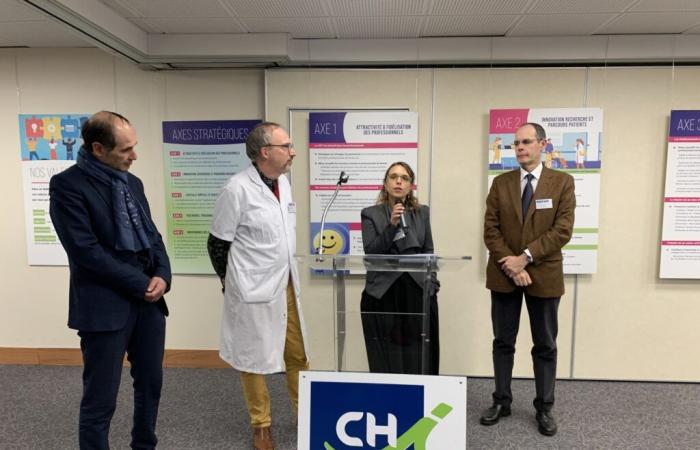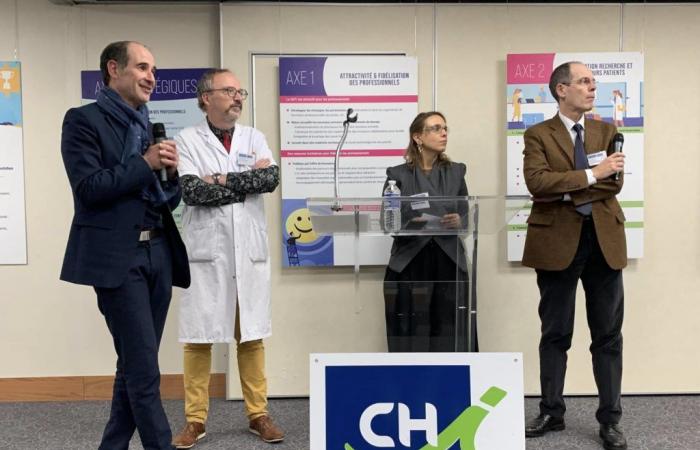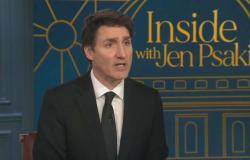The Elbeuf-Louviers-Val de Reuil Intercommunal Hospital Center (CHI) begins a new stage in its development with the development of its new 2024-2028 establishment project.
This strategic document, essential for the future of the establishment, sets the main directions in terms of patient care, modernization of infrastructure and improvement of the working conditions of health professionals. In order to better understand the challenges and ambitions of this project, the doctor Thibault Simonpresident of the Establishment Medical Commission (CME), agreed to respond to three essential questions.
1. What actions are planned to facilitate access to hospital for everyone?
Dr Thibault Simon : We have planned to strengthen the city-hospital link with local health stakeholders in order to facilitate, prepare and optimize the patient journey to the hospital. The increase in outpatient hospitalization, day hospitals (memory consultations, pediatrics, Parkinson’s, onco-geriatrics, etc.) or specialized services also aims to improve access to care.
For example, the day hospital offers specific courses for:
– The installation of hip prostheses (arthroplasty);
– Preoperative hospitalization with the preparation of the patient for the surgical procedure, the anticipation of rehabilitation needs and the prevention of falls;
– Support for patients suffering from Parkinson’s disease as their pathology progresses;
– Monitoring the evolution of chronic wounds;
– Memory consultations with an assessment of neurocognitive disorders, their origin and their impact;
– Geriatric monitoring;
– Onco-geriatrics, with an evaluation of treatments and appropriate support.
For memory consultations, the patient meets a geriatrician, a nurse, a neuropsychologist, a pharmacist and can, if necessary, undergo additional examinations such as an MRI. All appointments are grouped into one day to limit travel. A multidisciplinary synthesis is then carried out to take stock of the assessments (clinical, neuropsychological, medico-social) and adapt the treatment. Feedback is given to the patient and their primary caregiver.
For patients with Parkinson’s disease, a physiotherapy, occupational therapy and medical assessment is carried out over half a day in order to adapt care, technical aids and encourage staying at home.
2. How does CHI plan to improve the quality and efficiency of care?
Dr Thibault Simon : Our desire is to improve the quality and efficiency of care by adapting the offer, times and places of consultation. In imaging, for example, we will extend the scanner and MRI time slots until 8 p.m. on Mondays, Tuesdays and Thursdays (excluding school holidays). At the laboratory, it will be possible for any outside person (not hospitalized) to carry out analyzes prescribed by the attending physician or specialists with or without an appointment. We also plan the development of new biomedical technologies to streamline the operation of the establishment and free up time for caregivers, so that they can pay more attention to patients.
The CHI clinical research unit contributes to this improvement by allowing patients to access therapeutic innovations (new treatments, medical devices) close to home. Patient pathways, whether outpatient or fully hospitalized, will be better defined to optimize care and strengthen the city-hospital link.
3. What measures can be taken to better accommodate patients and their families?
Dr Thibault Simon : Better welcoming patients means better organizing the care pathway while taking into account their feelings and integrating those around them into the care process.
In particular, we plan:
- Improve signage and reduce waiting times;
- To offer advanced consultations in towns like Louviers, Bourg-Achard and Le Neubourg to avoid unnecessary travel for users;
- To develop telemedicine to facilitate access to remote care.
We also want to create warm and suitable places:
- A room dedicated to announcing cancers;
- A family room in intensive care;
- Parental rooms in pediatrics to allow parents to stay close to their child.
Other initiatives have been put in place to improve the daily lives of patients, such as giving a cuddly toy to each hospitalized child or the development of alternative practices such as acupuncture, hypnosis and comfort care. Finally, we seek to strengthen psychological support, involve patients more in their care journey and encourage collaboration with caregivers and patient-experts.
The objective is to evolve towards a therapeutic alliance between caregivers and patients, for global, human and personalized care.







